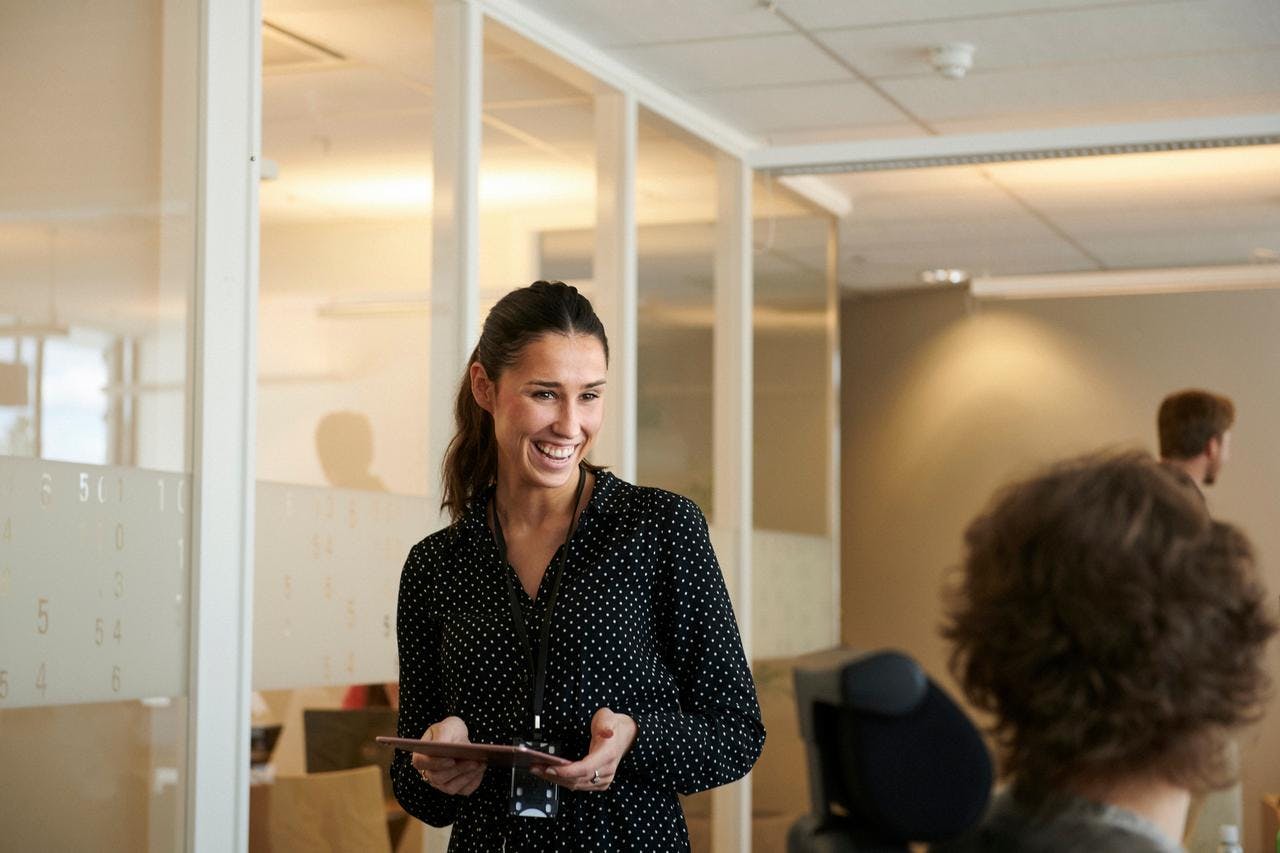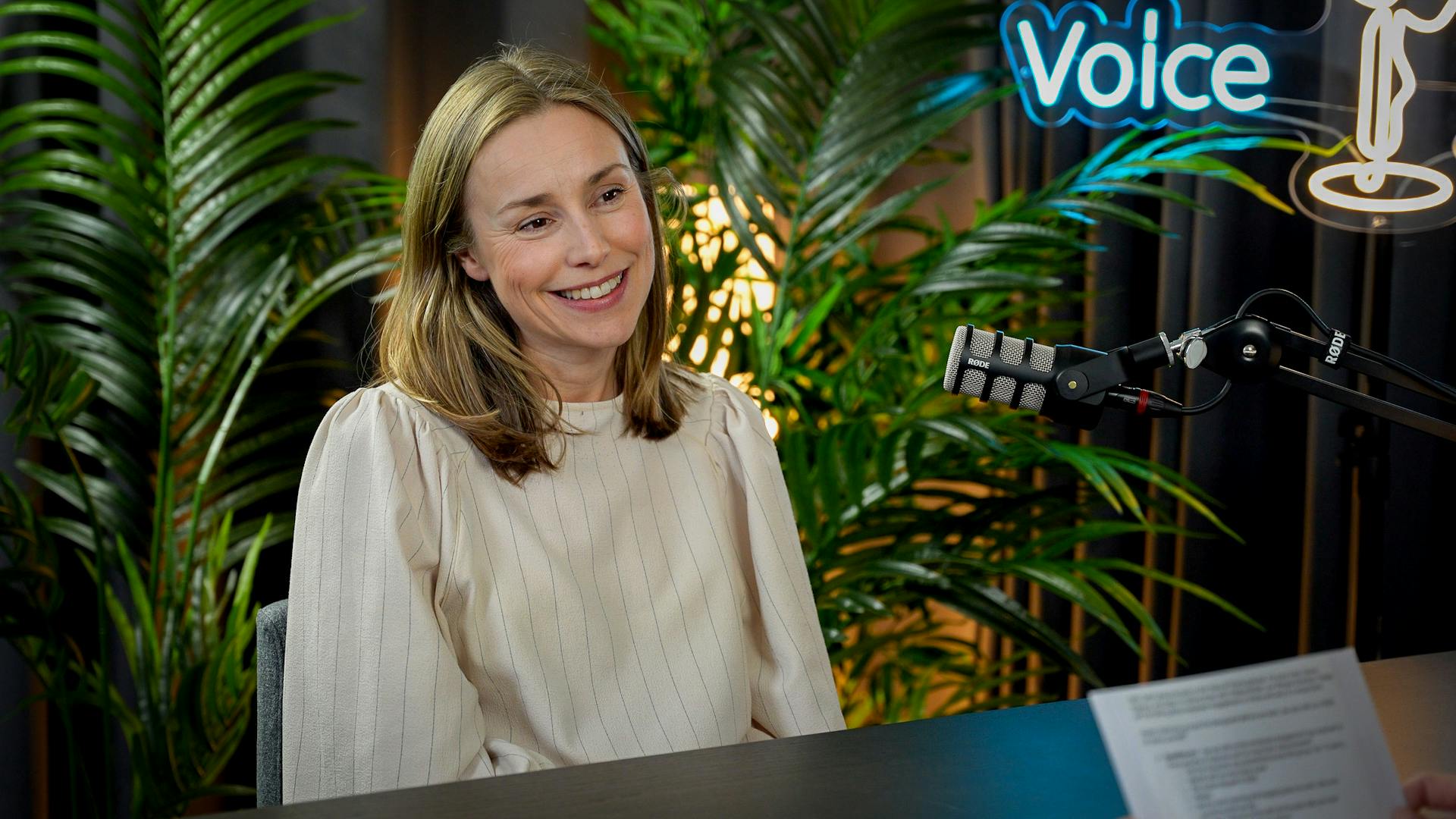Article
Facing the unimaginable: Monica’s journey with breast cancer
24/10/2024
min read
Life at Visma
Article
Facing the unimaginable: Monica’s journey with breast cancer

When Monica Wernersen was diagnosed with breast cancer in 2022, she suddenly faced a complex battle both physically and emotionally. It marked the beginning of months of treatment, multiple surgical procedures, and a lot of uncertainty. Through this challenging time in her life, the support from her manager and coworkers helped her balance the demands of recovery with other aspects of her life, including her career. Now, she openly shares her story about the importance of understanding and compassion – especially in the workplace – during personal crises.
Facing the reality of a cancer diagnosis
When Monica first noticed a lump in her chest, she wasn’t too worried as she had experienced having a cyst before. She scheduled a doctor’s appointment and was referred for a mammogram and an ultrasound. Feeling confident that this was just another cyst, she packed her bags for a cabin trip and planned to leave right after her appointment. But when the doctor told her she needed a biopsy as well, it hit her that something wasn’t quite right.
“Waiting for the initial test results was honestly the worst. I was questioning whether I was going to survive whatever this was, and whether my daughter and loved ones were going to lose me. I was also worrying about how tough the fight I had ahead of me would be. It felt unbearable, and I don’t wish that feeling on anyone”, Monica shares. When she finally received a call from the hospital, her fears were confirmed: She had cancer. To complicate things even further, they had discovered a second lump, which meant Monica needed to get more tests and an MRI done. “The sudden lack of control in my life was really hard to accept. I was constantly trying to get more information from the doctors in an attempt to regain a sense of power.”
Before my diagnosis, the only personal experience I had with cancer was losing a friend to breast cancer in 2008. Suddenly facing that very same disease made me reflect deeply on mortality. I had never felt as grateful for my life as I did during that time, so I couldn’t help but wonder, ‘Is this the beginning of the end?’
– Monica Wernersen
It turned out that Monica had hormonal breast cancer, which, fortunately, had not spread. After taking some time to process it, she felt ready to inform her manager, Lise Jokstad Hafskjold. “When I told Lise, she created such a safe space for me to be open about what I was going through. We agreed to wait until I received more information from the hospital before telling the rest of the team. It was an emotional conversation, but Lise dealt with it in the best way possible.”

Lise Jokstad Hafskjold and Monica Wernersen
A tough road ahead
The tumour was 5.5 cm in diameter, and Monica needed six months of treatment to shrink it before getting surgery and radiotherapy. During those six months, her weakened immune system required her to avoid big crowds and work from home. Together with her oncologist, she crafted a plan that included resting, getting proper nutrition, exercising, and spending time in nature – activities that were safe and helpful during recovery.
Lise helped Monica prepare a presentation for sharing the news with the rest of her team. Despite her preparations, emotions took over as she stood in front of them. “I ended up getting completely candid and very emotional, even expressing my fear of dying”, Monica tells us. “Looking back, I’m at peace with how it went, because there’s never an easy way to tell people you have cancer and don’t know how things will turn out. That was my reality at the time, and thankfully I was met with so much love and support.”
The truth is that life happens and you can’t prepare yourself for everything. When something suddenly flips life as you know it upside down, I think it’s extremely damaging to hide your emotions. It just makes it grow into something bigger and more painful than it already is.
– Monica Wernersen
As surgery approached, Monica’s mental health took a turn for the worse. Despite receiving professional care, one question loomed in the back of her mind: What if something goes wrong? Anxiety was a constant struggle. Recognising this, Visma’s HR set up therapy for Monica, which proved invaluable in managing her anxiety and helping her cope with everything.
“As Monica’s manager, it was important for me to make sure we took good care of her”, Lise shares. "In the initial period leading up to her diagnosis, she and I stayed in close contact, adjusting her tasks and projects to match her capacity. Managing the communication of her diagnosis to the rest of the team was a delicate balance, but Monica’s openness made the process much easier. The entire team was incredibly supportive and eager to step in and help with her workload."

Lise Jokstad Hafskjold, Director of Business Operations at Visma Enterprise
In March 2023, Monica underwent surgery to remove her right breast and some lymph nodes. A tissue expander was inserted, with plans to eventually replace it with a silicone implant. Unfortunately, she experienced complications as her surgical wounds filled with fluid, which led to her having to go through another procedure to remove the expander. Due to these complications, radiotherapy had to be postponed. Months of gruelling treatment took a significant toll on Monica both physically and mentally, yet she eventually pushed through 20 sessions of radiotherapy up until June of 2023.
“By the time autumn arrived, I felt ready to return to work but the doctors stepped in to give me a reality check”, Monica tells us. “Treatment has been extremely tough, and I need to be on hormonal therapy for five years. Lise really helped me recognise what I hadn’t been ready to confront: I needed more time to rest and recover. Radiotherapy had taken a huge toll on my body and mind, leaving my energy levels and ability to concentrate at an all-time low. I was struggling to accept these changes and having to find myself all over again.”
Thankfully, Monica is now cancer-free and all signs indicate that it’ll remain that way. “I no longer waste my energy worrying excessively about cancer”, she says. “I’ve come to a point where I want to put it behind me and focus on the road ahead, adjusting to life after cancer treatment.” She’s currently scheduled for reconstructive surgery for the breast that was removed, but as of right now, she feels unsure whether another surgery is something she wants to go through with. “I’m incredibly proud of what my body has endured already. I have truly been through a war and came out victorious. That’s all I dared to hope for.”
During and after treatment, Lise and the rest of Monica’s coworkers were invaluable. “As I was struggling with my memory and ability to focus, I felt like I didn’t recognise myself anymore. I had been an ambitious Project Manager for about 20 years and was used to feeling in control. Now, I suddenly couldn’t do simple things like stay awake after working for a couple of hours. I slept for 10–12 hours a day and felt like a shadow of myself”, Monica recalls. She quickly realised that she needed more help than she initially thought while adjusting to getting back to work. She started working with a mental coach who helped her relearn a lot of things and accept the reality of her new situation.
I felt empowered and ready to take back my career, but I also recognise that that would not be possible without the support of Lise, my teammates, the HR department, and the management at Visma.
– Monica Wernersen

Monica during cancer treatment
How to best support coworkers going through personal crises
To support Monica on both a professional and personal level, Lise found maintaining a flexible approach to be crucial. This meant adjusting workloads, deadlines, and expectations, as well as ensuring that Monica felt seen and included as a vital part of the team. Adaptive work arrangements and a welcoming environment where she could talk openly about her needs and boundaries were essential to that support.
When asked about how to maintain communication with an employee going through a tough time, Lise shared the following advice: “I always made sure that Monica and I stayed in touch by scheduling our next meeting or phone call before finishing the current one. We aimed to coordinate our check-ins around her doctor appointments and adjusted our plan as needed. The meetings included both professional updates when she was working part-time and, more importantly, personal check-ins throughout her treatment.”
Building a strong leader-employee relationship from the beginning makes it easier to maintain a good dialogue when things get rough on a personal level.
– Lise Jokstad Hafskjold
Lise kept track of important dates, such as Monica’s doctor’s appointments, in her calendar so she could send her uplifting messages on days when she needed them most. Monica also made an effort to keep Lise updated on her treatment progress and well-being. Maintaining a two-way communication helped both parties feel connected to one another throughout the process.
Balancing multiple responsibilities as a manager, while supporting a coworker through a tough time, is a challenge in itself. Also, being closely involved with someone battling a life-threatening illness would be tough on anyone. Because of this, Lise emphasises the importance of taking care of yourself. “Use your network for guidance and support. A healthy manager or coworker will be better equipped to support others than someone who is struggling to stay afloat themselves.”
When asked if she has any advice for other managers facing similar situations, Lise tells us: “Listen actively, communicate openly, and maintain flexibility. Every person's experience with illness is unique and requires a personalised approach. The value of a compassionate work culture cannot be underestimated for everyone involved, and it has been really moving to see how the team has gathered around Monica to let her know that she’s not alone.”

Lise Jokstad Hafskjold and Monica Wernersen
Personally, I’m a very open and transparent person. My philosophy is that we’re only human, and humans offer a lot more than what first meets the eye. A big part of my motivation to speak about my private situation is knowing that I might help someone else going through something similar. We all will face difficult times in our lives, so be a colleague that dares to show that they care.
– Monica Wernersen
Looking back at the past couple of years, Monica reflects: “Tomorrow isn’t promised, and I feel incredibly lucky to get to continue living my life, being a mom to my beloved daughter, and experiencing the beauty that life has to offer.” Today, she’s still finding her path on the remainder of her journey with cancer, and her wellbeing has become her top priority. “Thankfully, I have an employer that stands with me through the hard times. If you’re struggling with something that’s happening in your life, I encourage you to give others the benefit of the doubt and dare to believe in the good in them. That’s how I met so many incredible people who made me feel less alone and taught me lessons that I will cherish for the rest of my life.”

Want to learn more about how we take care of our people?
Voice of Visma
We're sitting down with leaders and colleagues from around Visma to share their stories, industry knowledge, and valuable career lessons. With the Voice of Visma podcast, we’re bringing our people and culture closer to you. Welcome!






























































































































































































































